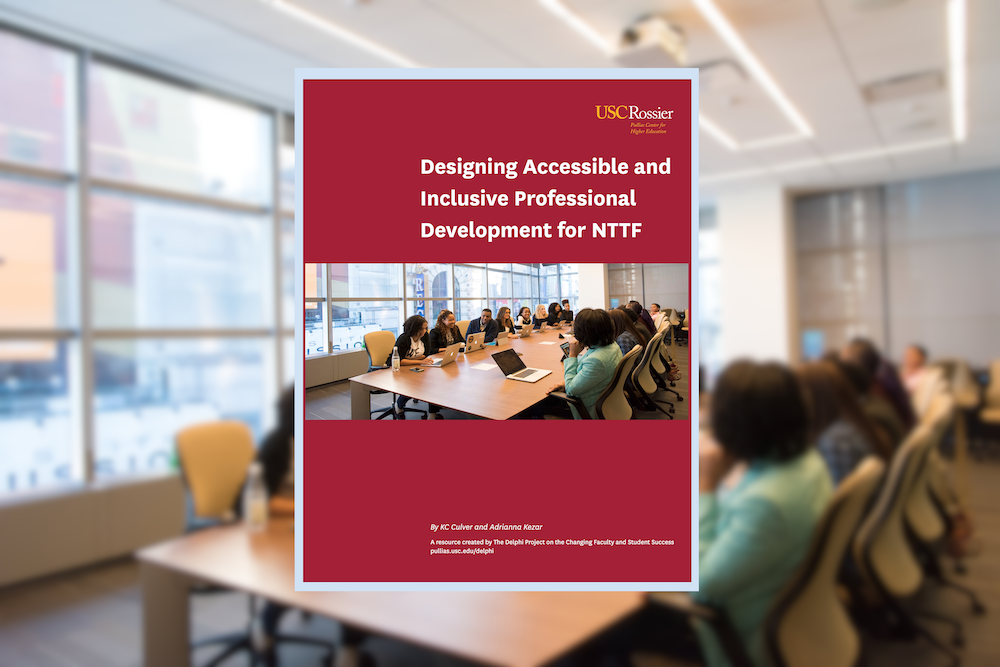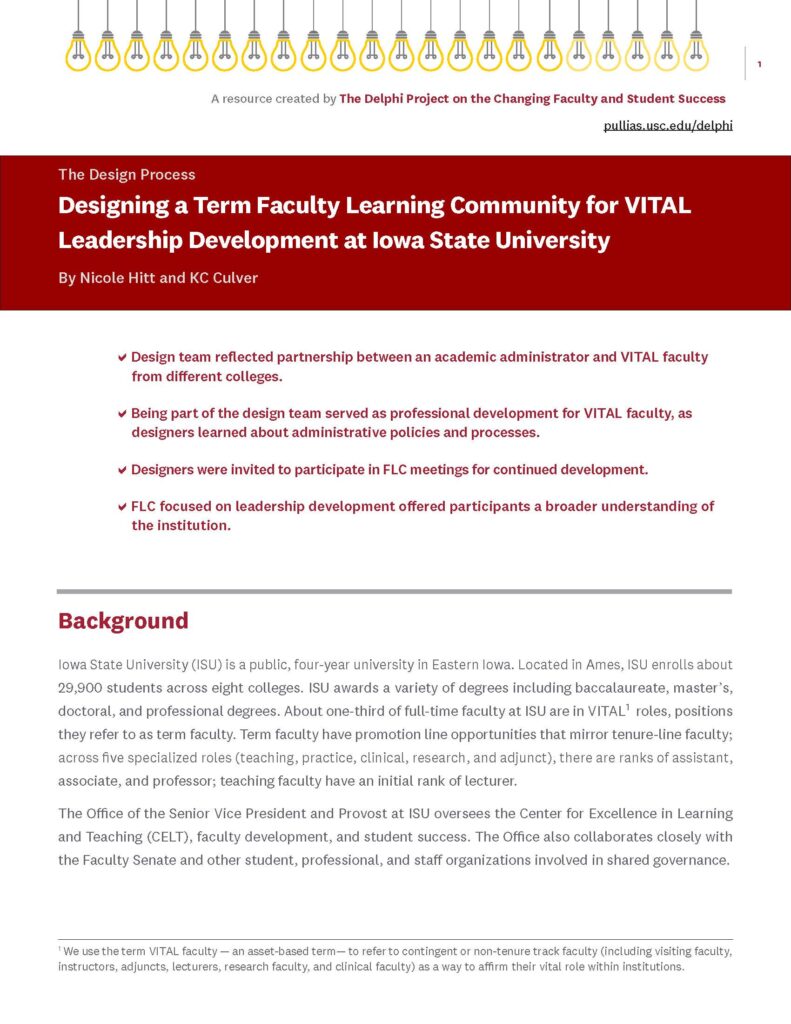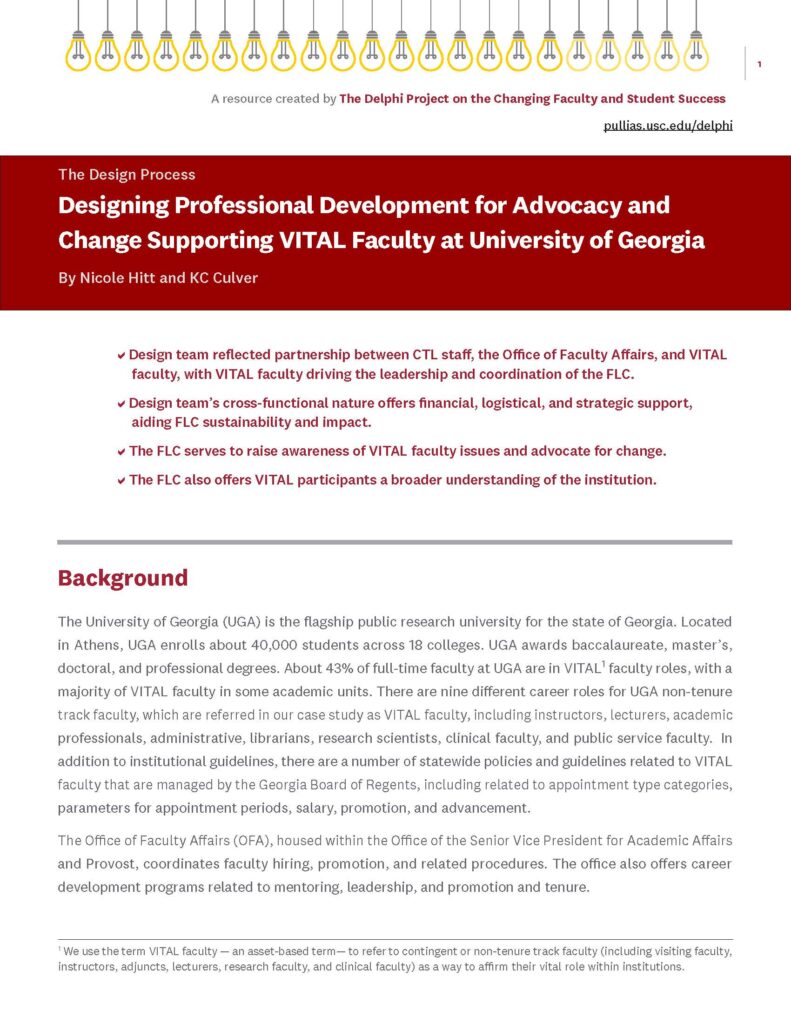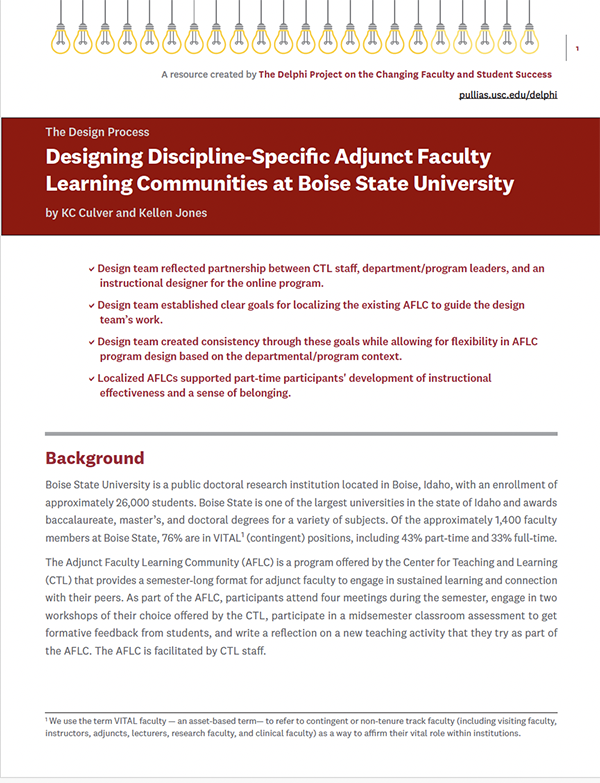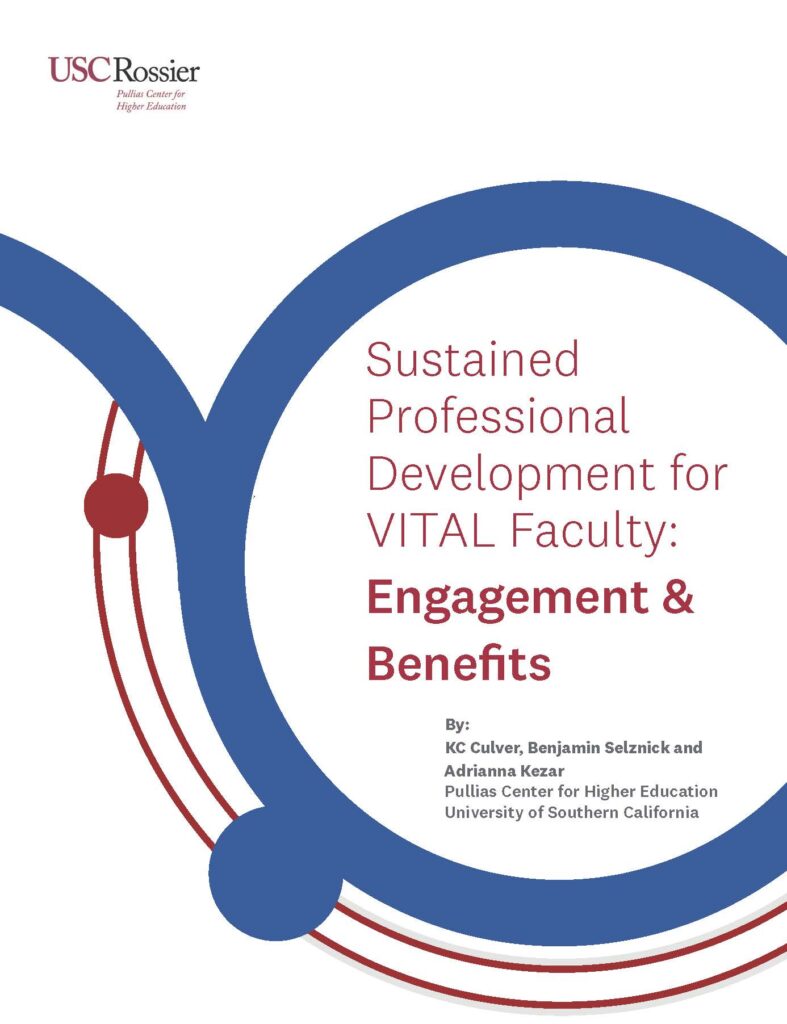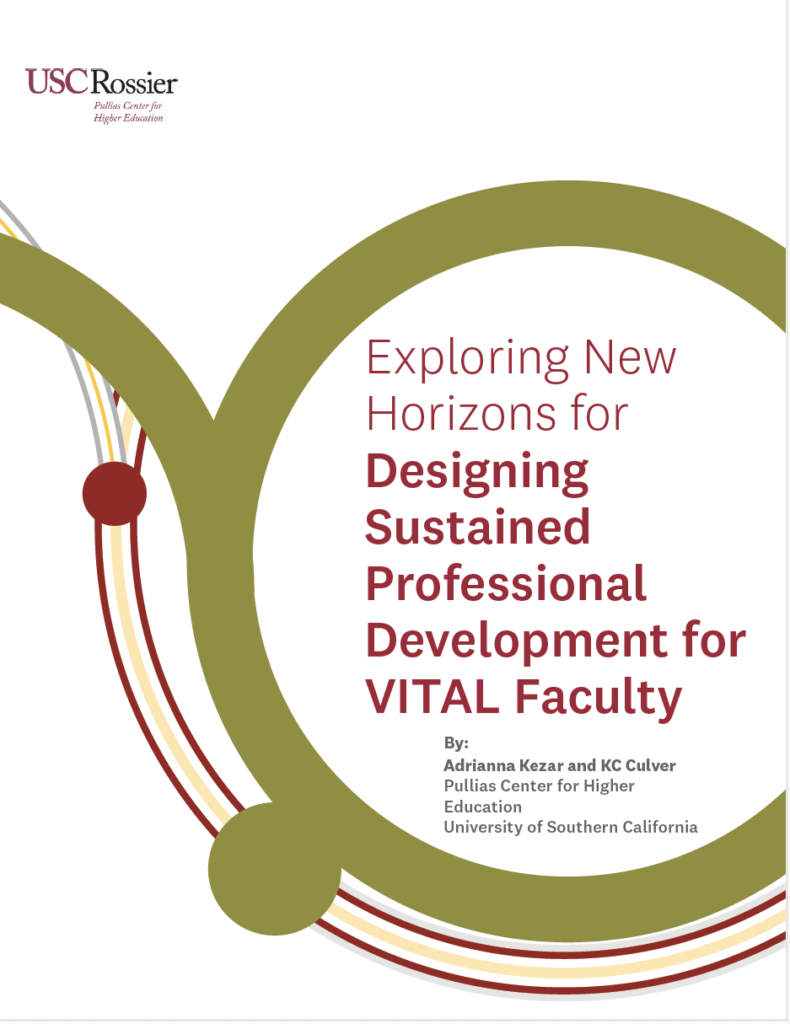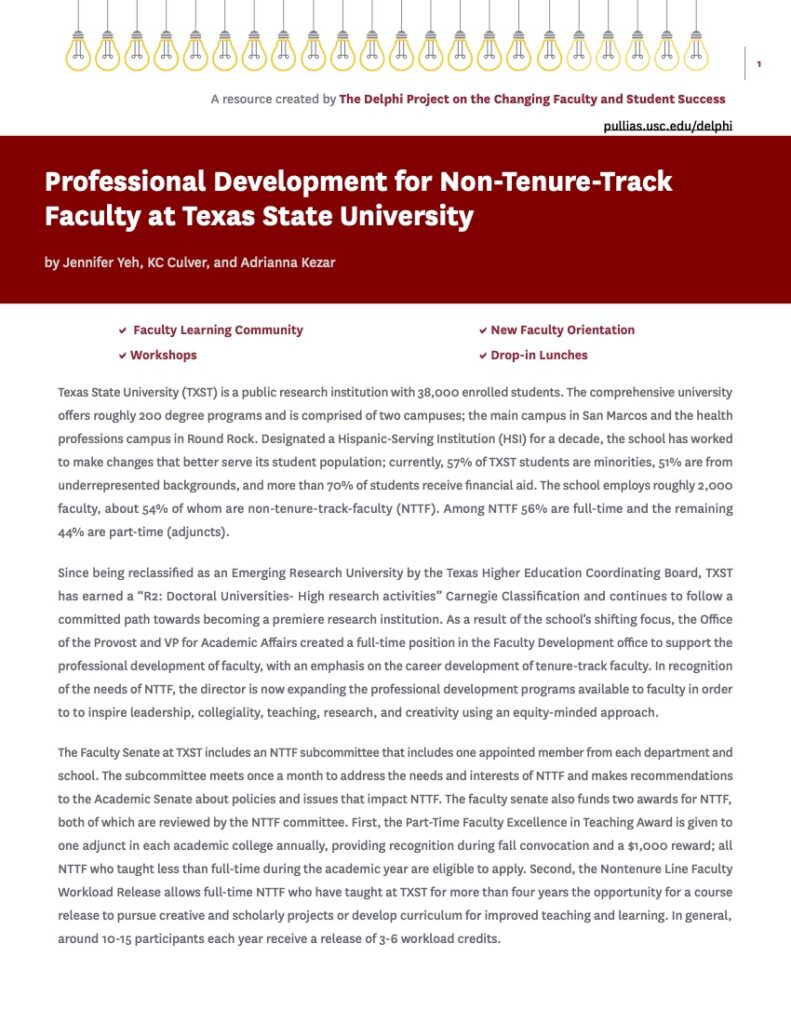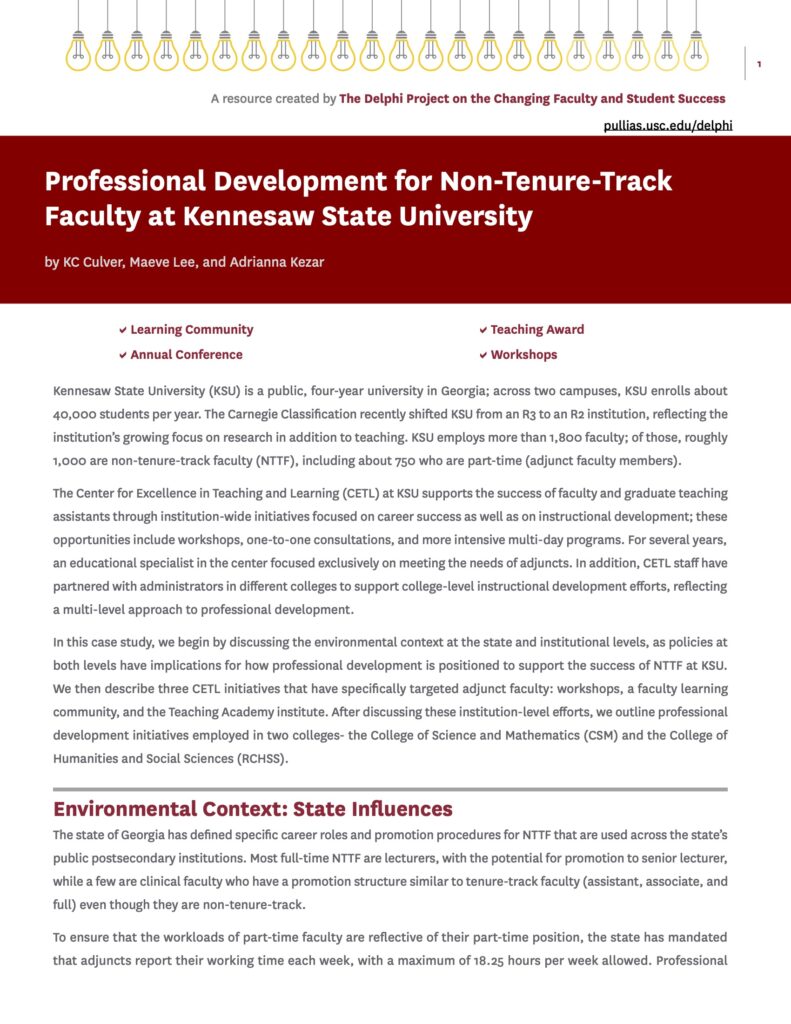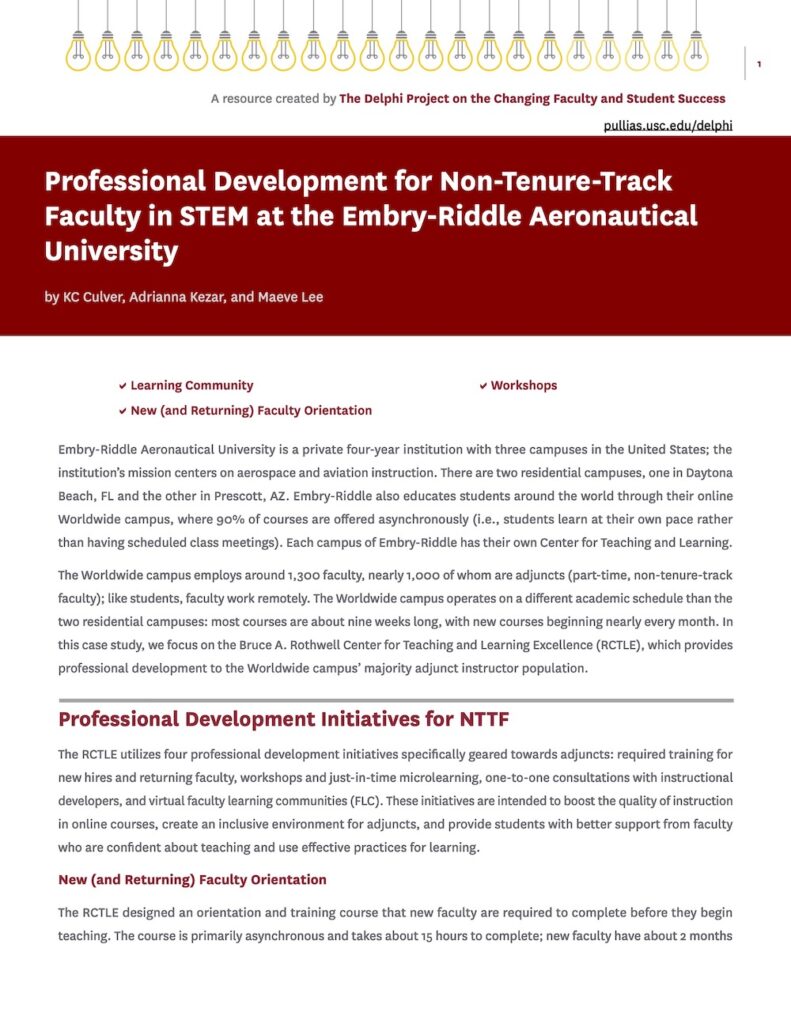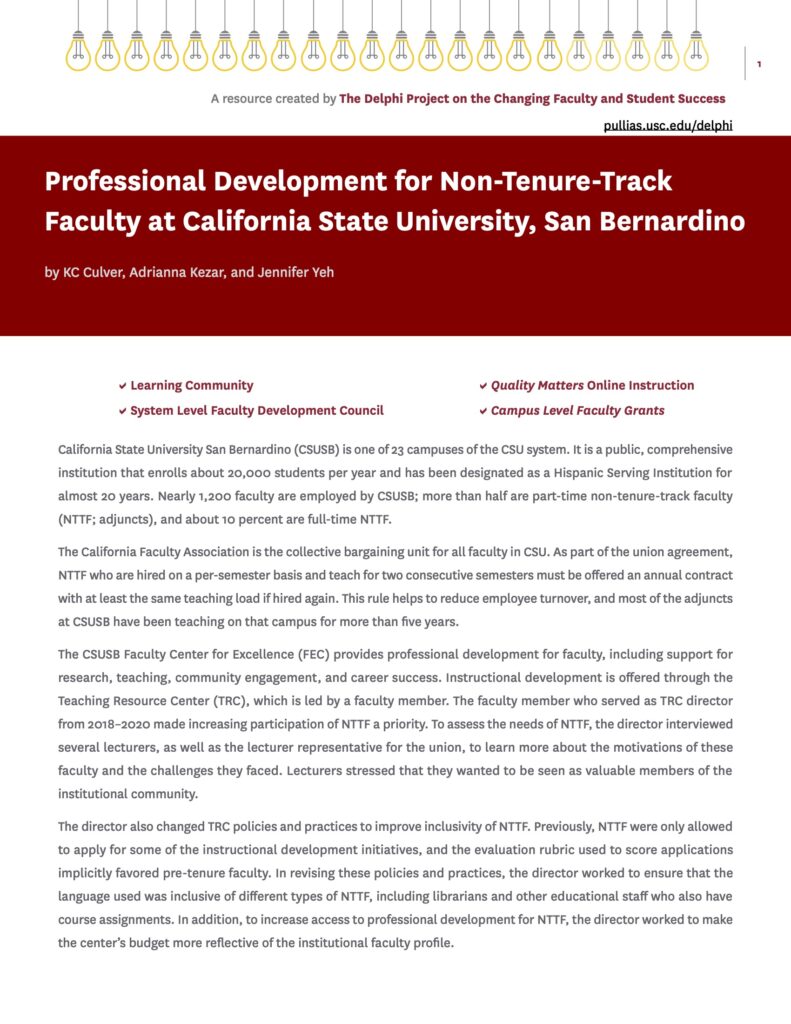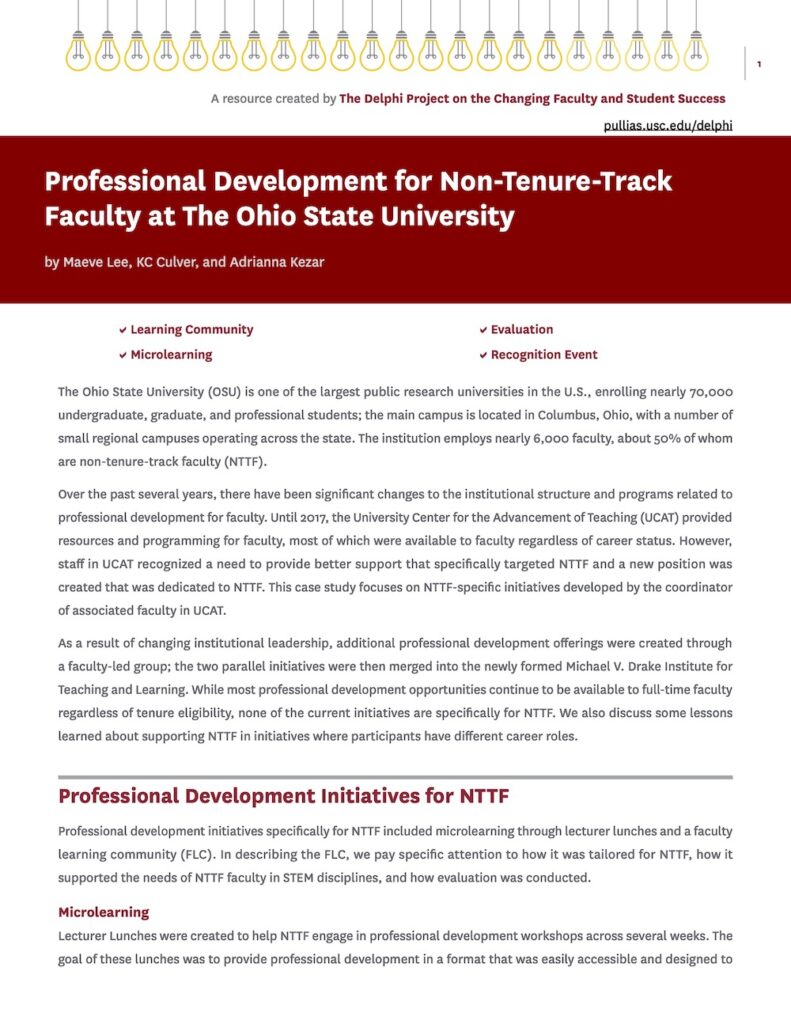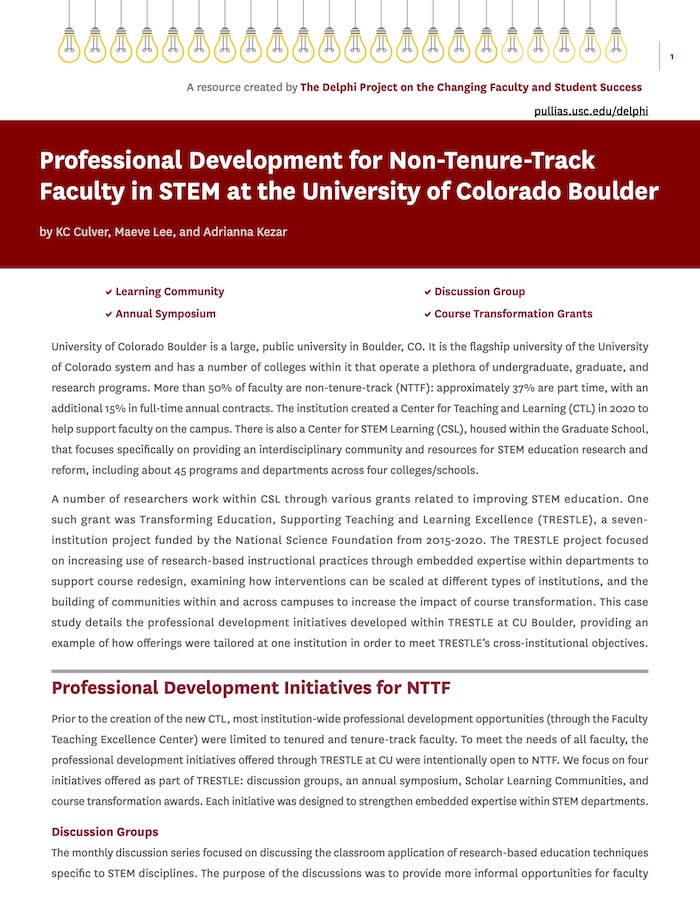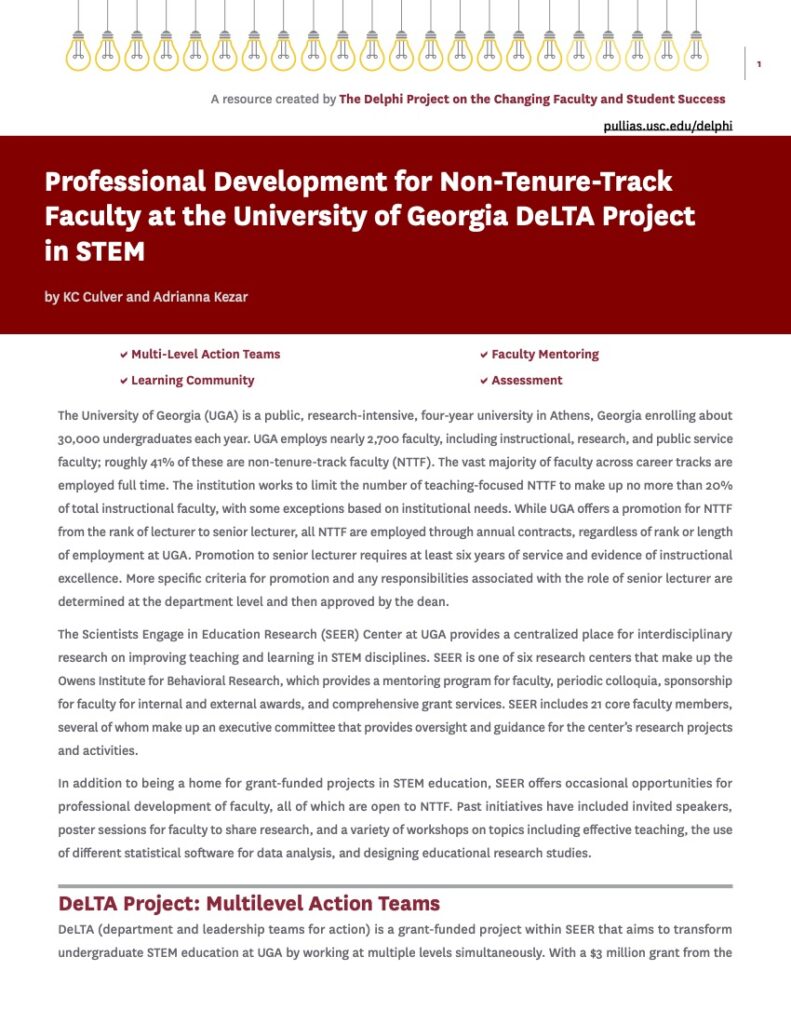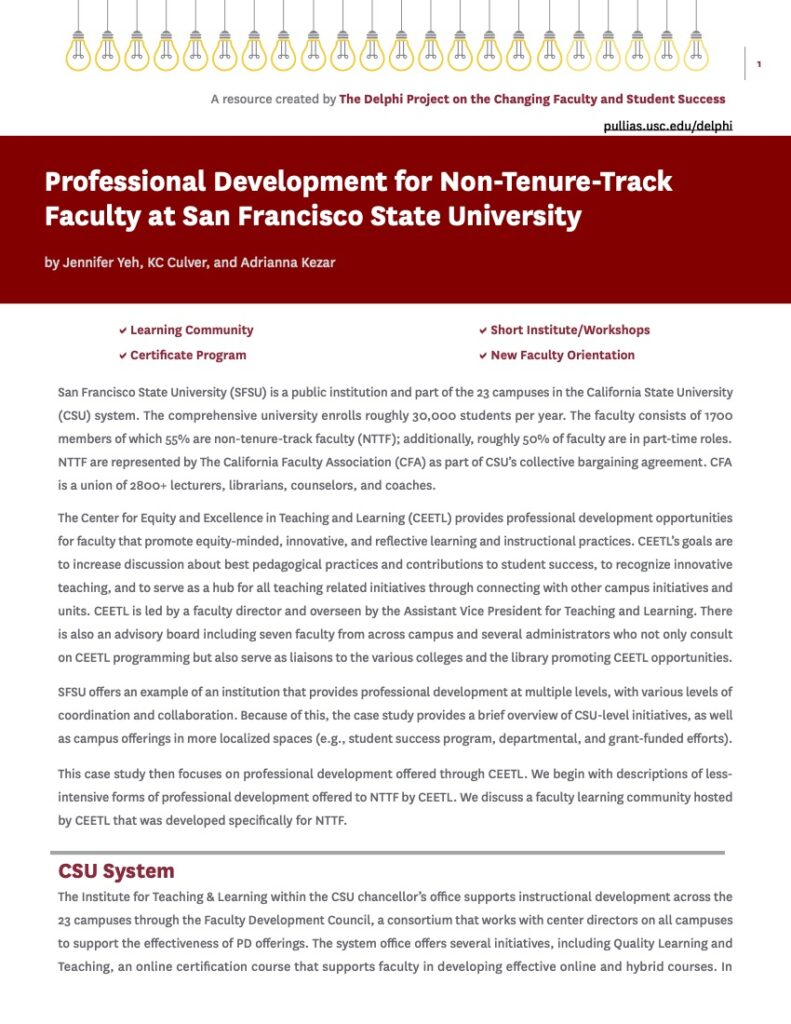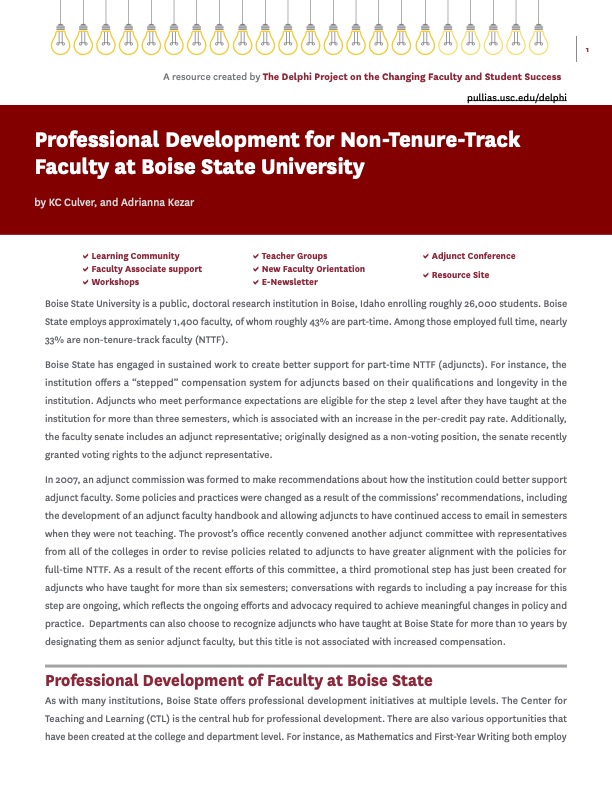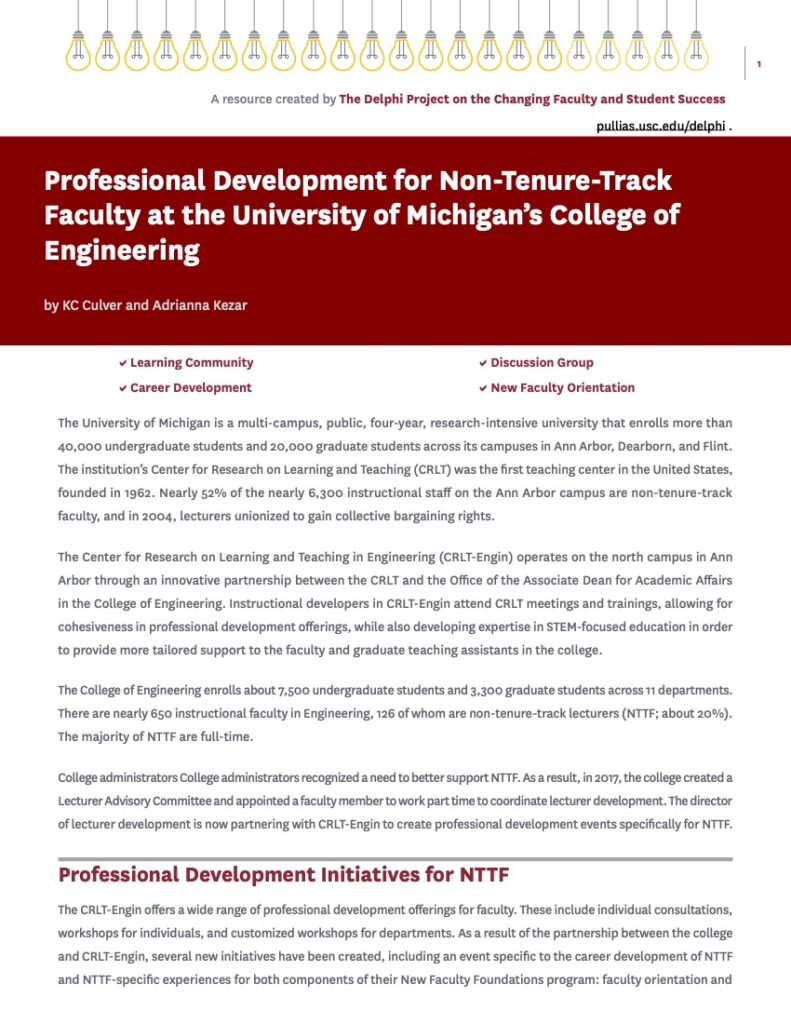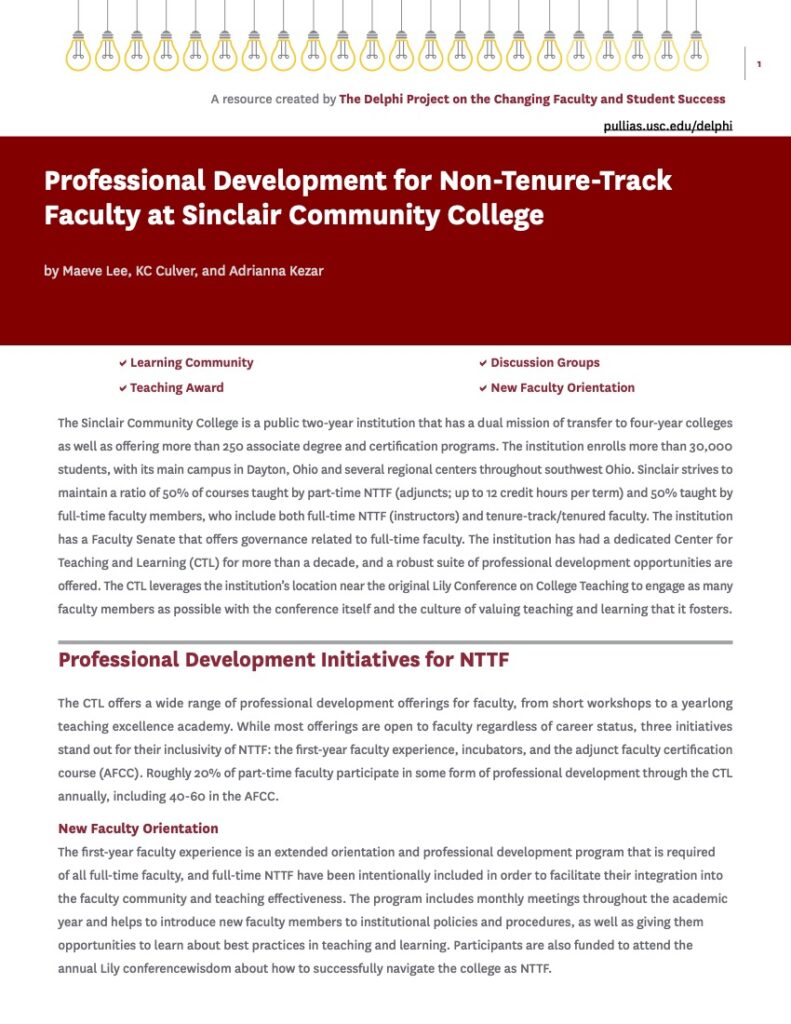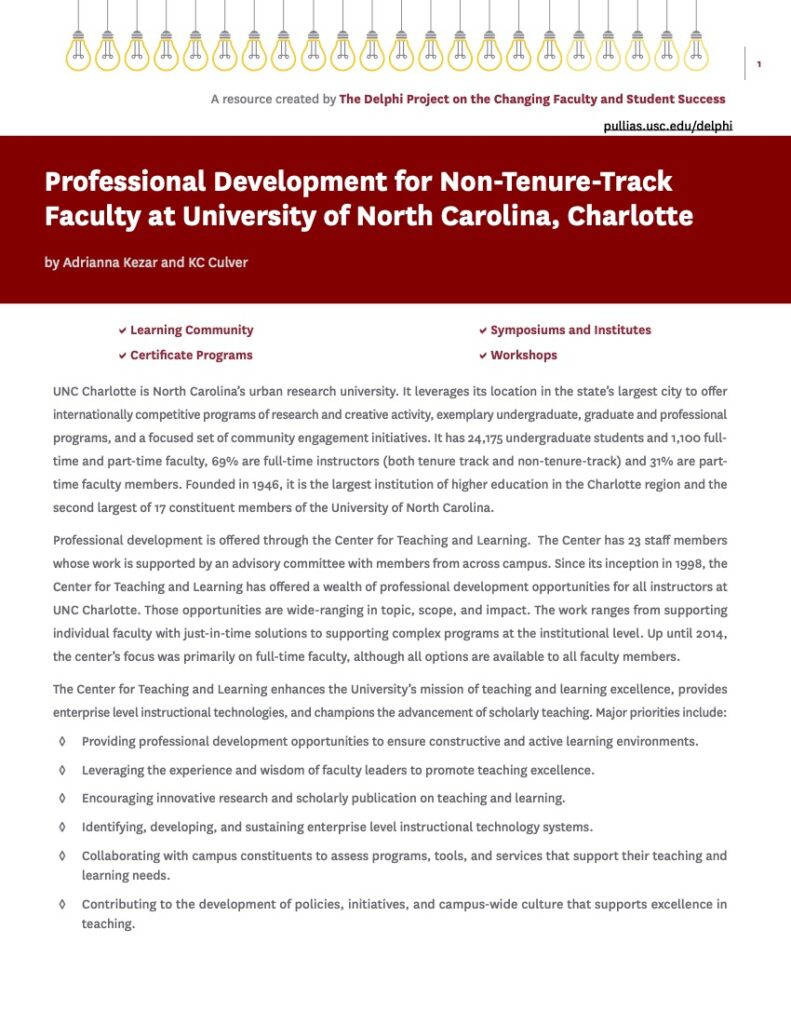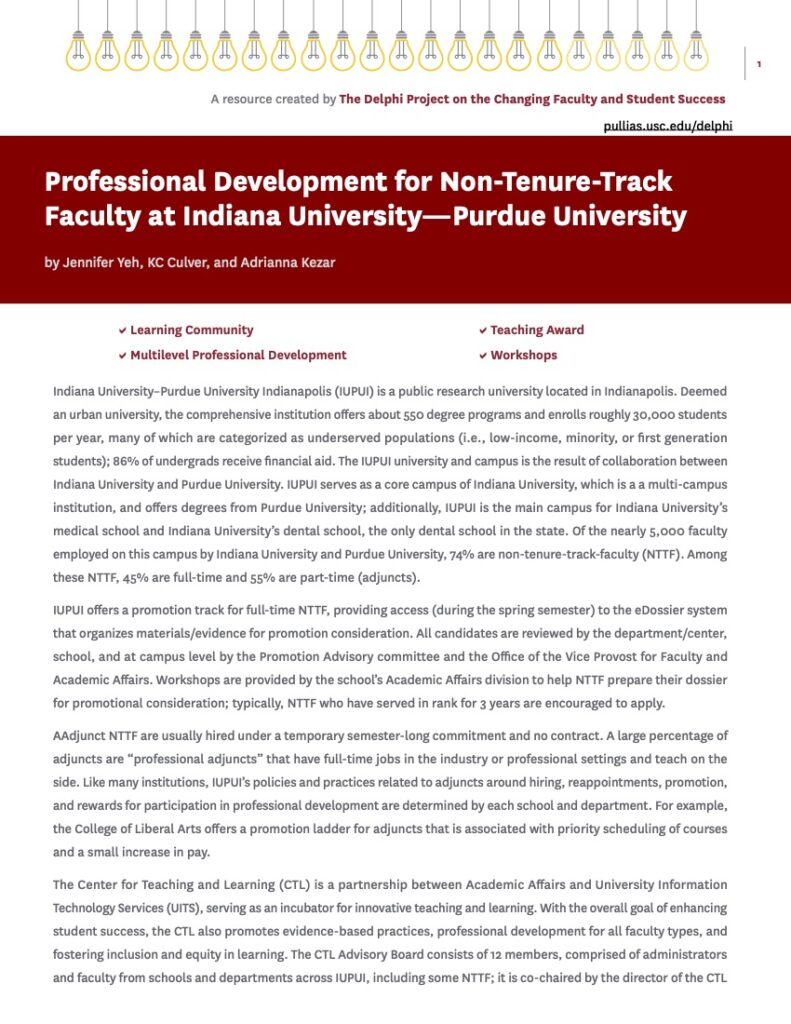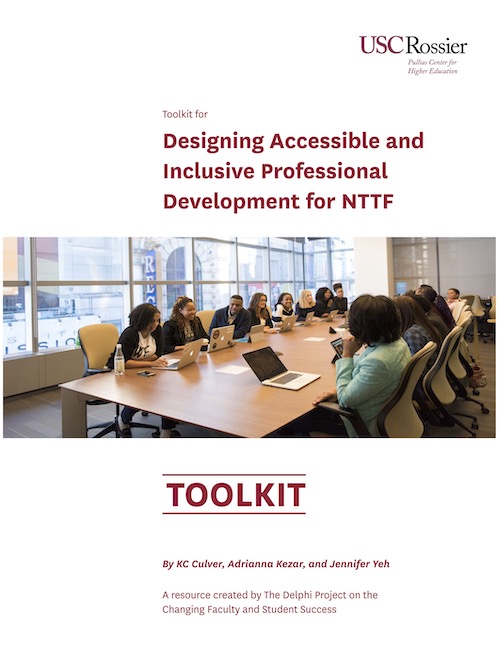
Description
Scaling Support for Contingent STEM Faculty aims to help campus teams provide support, particularly related to professional development, to aid contingent faculty who lack the institutional support to provide a quality learning environment for students in STEM.
About
The major focus of the project is to conduct research in important areas that contribute to the goals of better supporting contingent faculty in STEM. We will address three questions:
- Design of Sustained Professional Development (SPD): What aspects of SPD design do contingent faculty report influencing their ability to engage in equitable and inclusive ways to achieve intended outcomes?
- Impact of SPD: Do contingent faculty report participation in SPD achieves intended outcomes (such as teaching effectiveness, sense of belonging, and career development)? If so, in what ways?
- Influences on the Success of Sustained Professional Development (SPD): What policies and processes do design teams report influencing their ability to engage contingent faculty in professional development in equitable and inclusive ways?
Our two phases of research address these questions using different approaches:
Phase One
In the first phase of research, we conducted case studies of campuses’ design teams that have already made effective changes and can serve as models for aspiring campuses. (link to toolkit and report).
We also studied existing professional development opportunities that have successfully engaged contingent faculty. We identified 14 campuses to participate in this study and conducted interviews with key staff. Results from this study can be found – link.
Phase Two
In phase two of the project, we are engaging campuses in action research to support campus design teams in creating or revising existing SPD programs with the goal of better supporting contingent faculty. In this phase of research, we are working with campus design teams to provide guidance and models for both their design process and the various types of SPD that they can implement. Research is forthcoming.
Project News
Project Team
Adrianna Kezar
Principal Investigator
Professor, USC
K C Culver
Consultant
Publications
Funder

This project is funded from the Improving Undergraduate STEM Education program within the Department of Undergraduate Education of the National Science Foundation, under Grant No. NSF DUE-1914784.


